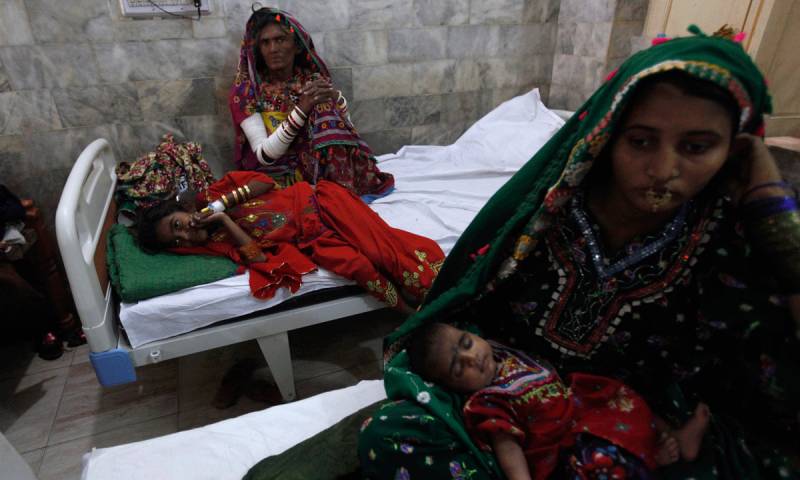As seven more children lost their lives to diseases caused by malnutrition at Mithi civil hospital in Tharparkar over the past two days, it is important to question what the future holds for this underprivileged and drought affected area. The death toll, according to official figures, has risen to 222 this year, however local sources maintain that over 355 kids died across Thar this year alone. The children’s parents alleged that their kids were being forcibly discharged from the civil hospitals and were being referred to Hyderabad without providing them transport to get there.
The humanitarian crisis that has unfolded in Tharparkar is largely due to the government’s neglect that continues despite the fact that it has the highest under-five mortality rate in Pakistan. In a recent fact-finding mission conducted by the United Nations, women and children eat significantly less than men, explaining the dangerously low birth rate and malnutrition. The availability of water has also become a looming concern as the lack of access to safe drinking water and sanitation facilities contribute greatly towards low health indicators. The government, a year ago at a huge cost of $54.6 million, installed 450 reverse osmosis plants to resolve the issue of accessibility to drinking water, yet half of them are out of order due to maintenance problems and negligence.
The 865 billion budget that has been announced by the Sindh government, promises no significant allocation to improve the plight of the people of Tharparkar. There has been mention of funding for infrastructure in Thar, but that too only in association with the various projects on coalmines and power generation, clearly the only focus of the provincial government.
The budget of Balochistan, another area with an immense need of attention, is no more hopeful than that of Sindh’s. The total outlay of its annual budget for the next fiscal year is set to be one fourth of that of the Sindh budget, around Rs277.56 billion with a hefty amount going to development, with an allocation of Rs60 billion. It is about time that these areas receive the funding and the political will required to improve their standard of life.






